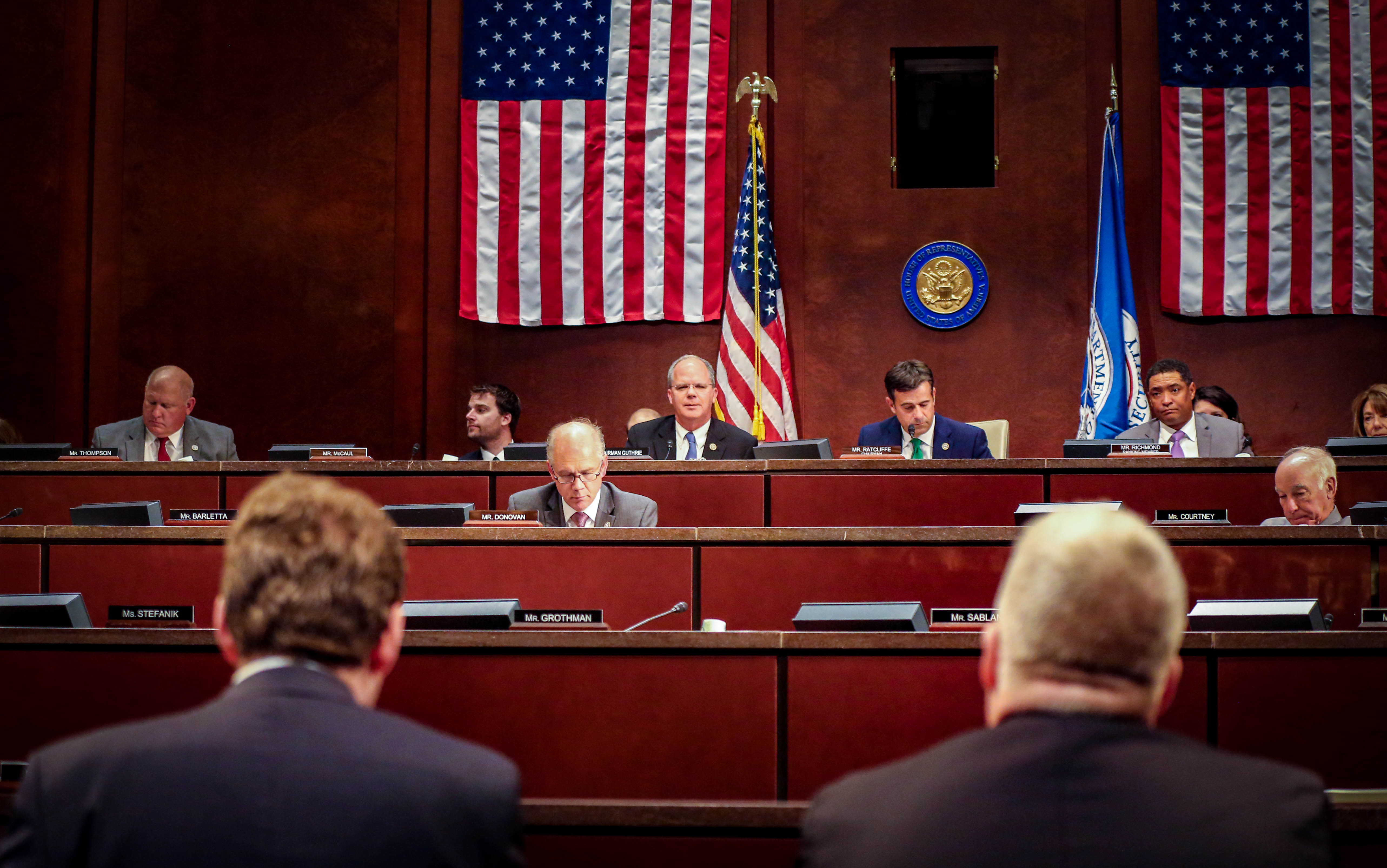The Subcommittee on Higher Education and Workforce Development of the Committee on Education and the Workforce, chaired by Rep. Brett Guthrie (R-KY), and the Subcommittee on Cybersecurity and Infrastructure Protection of the Committee on Homeland Security, chaired by Rep. John Ratcliffe (R-TX), today held a joint hearing on “Public-Private Solutions to Educating a Cyber Workforce”.
At the opening of the hearing, Chairman Guthrie discussed the critical nature of strengthening public-private cybersecurity partnerships and educating today’s professionals in order to fill the existing cybersecurity skills gap.
“Organizations in the public and private sectors are actively seeking skilled professionals to fill the numerous jobs available in the growing cybersecurity field, and are coming up short in the number of Americans able to fill these essential positions that ensure our American cyber-infrastructure is safe,” Chairman Guthrie said.
“This skills gap is not unique to the cybersecurity sector,” the chairman continued. “Many other industries such as manufacturing and transportation are facing a shortage of skilled workers to fill good-paying jobs. However, when dealing with cybersecurity, the stakes are even higher because we are dealing with national security.”
Members heard from David Jarvis, the Security & CIO Lead from IBM Institute for Business Value. Jarvis painted a picture for the subcommittees about just how high the stakes are for securing our cyber networks.
“We are seeing security attacks and techniques continue to evolve across skill levels, geography, and sectors. It is now estimated to be one of the largest illegal economies in the world, costing the global economy more than $445 billion dollars a year,” Jarvis said.
“As the threat emanates from a variety of angles, we need to respond with innovative cyber defenses including a workforce with a diverse set of skills that are constantly updated,” he stated.
Dr. Stephen Cambone, Associate Vice Chancellor of the Texas A&M University System in College Station, TX offered his perspective on how to fill the existing skills gap. Cambone stressed the need for a cyber workforce comprised of professionals with an expansive understanding of America’s cybersecurity needs.
“Given our increasing reliance on cyber-physical systems—the power grid and the Internet of Things being two examples – there is a compelling need for well educated professionals to address the cybersecurity needs of the nation. Those needs are felt at the local, tribal, state and federal level. Some put the need at more than 200,000 professionals, not including the primary, secondary or university educators,” Cambone said.
“Universities across the nation are experimenting with a variety of undergraduate and graduate degrees and professional education programs to meet the demand,” Cambone continued. “The difficulty faced in meeting the demand is both the shortage of well-educated instructors and the increasing velocity of change in the field of cybersecurity.”
Douglas Rapp, the president of the Cyber Leadership Alliance based in Zionville, IN, explained how strengthening public-private partnerships in the cybersecurity arena is the best solution for aiding cyber workforce development.
“As technology continues to connect us in ways that create synergy and solve complex problems more efficiently, so must we connect our public and private organizations to do the same,” Rapp said. “By integrating, understanding, and accepting our respective capabilities and differences, we can solve the difficult problem of educating a modern cyber workforce quicker and more efficiently.”
Rapp added that cybersecurity workforce development needs attention from both the public and private sectors in order to garner real results.
“Cybersecurity workforce development efforts must be driven by public private partnerships. No one private entity, industry sector, branch or level of government should attempt to ‘own’ cybersecurity,” he said.
As more jobs emerge in the field of cybersecurity, the Committee on Education and the Workforce will continue working to bolster commonsense solutions to expand access to work-based learning and earn and learn opportunities. With these targeted efforts, we can begin to close the cybersecurity skills gap and cultivate a robust and thriving cyber workforce.
# # #

